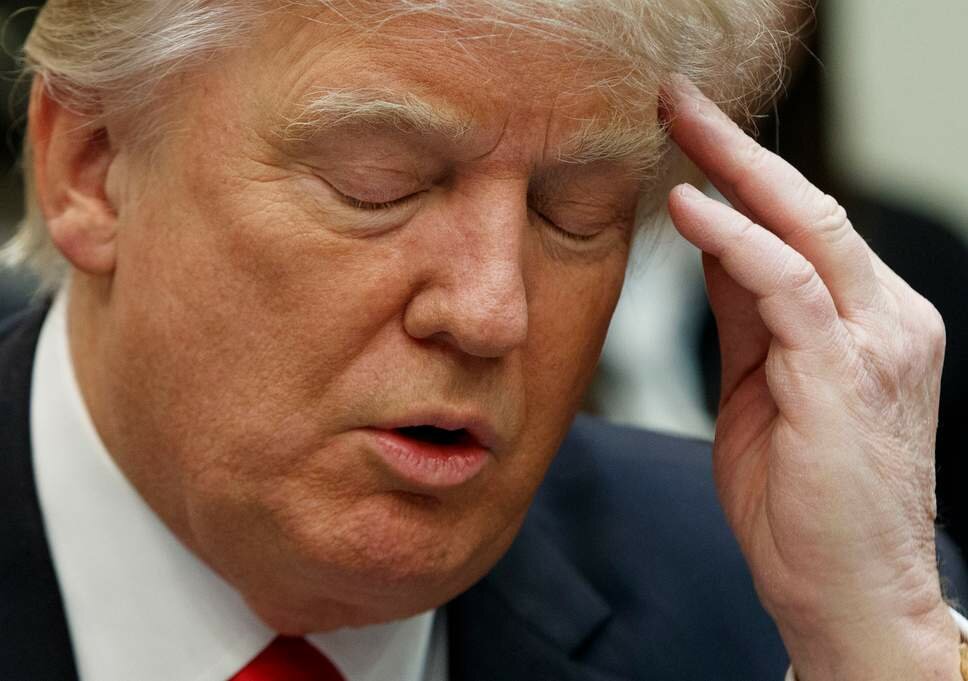The US foreign policy in the world has been condemned by many international actors. Washington has, on one hand, promoted unilateralism during the presidency of Donald Trump, and on the other hand, has caused irreparable harm to the diplomatic relations of the world.
Polls in the United States indicate that most American voters are dissatisfied with Trump's foreign policy. A majority of Americans disapprove of the way President Donald Trump is handling U.S. foreign policy and about half think the country’s global standing will deteriorate during the next year, according to new poll that highlighted the nation’s partisan divide on foreign issues.
as The Associated Press reported , Overall, the president receives low marks from the public for his job handling foreign policy — 35 percent approve, while 63 percent disapprove. Like other issues, the partisan divide is startling. While 76 percent of Republicans approve, just 8 percent of Democrats say the same.
“I just think that any time you buddy up with Russia or North Korea, it’s going to be bad business,” said Samantha Flowers, a 30-year-old third-grade teacher from Columbia, Missouri.
"Also, the way that he's handling our neighboring countries — Mexico in particular. I think it just goes against our American values in general. We've been a welcoming and compassionate country," she said before starting to recite words emblazoned on the Statue of Liberty, which reads in part: "Give me your tired, your poor, your huddled masses yearning to breathe free."
The fact of this is that one of the major points of the foreign policy of the Trump government is the issue of Iran. Undoubtedly, in the near future, Trump will see the consequences of his encounter with Iran over issues such as economic sanctions and withdrawal from the nuclear deal. On the other hand, it should not be forgotten that the United States President can not only have a strong presence in the White House by focusing on economic issues. Therefore, even if Trump will win the presidential election in 2020, he will not have a firm presence in the White House. Currently, in many public and state polls in the US, citizens of the country prefer people like Joe Biden and Bernie Sanders to Trump.
The conflict between the United States and the Iranian people is rooted in the hostility of Washington to the Iranian people. This hostility has long existed.sixty-five years ago, a CIA-backed coup toppled Mohammad Mosaddegh, Iran’s prime minister. The goal of the coup was to strengthen the West’s ally Mohammad Reza Pahlavi.The last year, U.S. Secretary of State Mike Pompeo announced the creation of a new Iran Action Group to coordinate U.S. policy toward the Islamic Republic in the wake of the U.S. withdrawal from the Joint Comprehensive Plan of Action (JCPOA).The formation of an action group against Iran by the U.S. Department of State can be analyzed and evaluated from different dimensions.The important point that should accordingly be taken into consideration is the "smart observation" of the United States policies by the Islamic Republic of Iran. If we take this approach, as we did in the past 40 years, we can make sure that Trump's failure costs will be above those of his predecessors! It should not be forgotten that the more severe the U.S. "action" against Iran, the stronger the "reaction" of Iran towards the United States. This is a rule that many American strategists have understood and have warned the White House about.
The Iranian nation has long been aware of the nature and identity of the United States.Neither the victory nor the failure of one of the two traditional American parties could change the American authorities' policies towards our country. The hostility of the U.S. Democrats and Republicans to our nation, and the vicious and extensive efforts of the two to confront the foundations of the Islamic Revolution of Iran, have been proven to all. In this equation, there's no difference between Jimmy Carter, Reagan, Bush, Clinton, George W. Bush, Obama, and Trump.
Anyway, today is a government in the United States, whose foreign policy is not approved by many American citizens!
As Usa Today reported, Venezuelan President Nicolas Maduro is deriding President Donald Trump as foolish for trying to oust him. Kim Jong Un is testing Trump’s “love” – and his resolve – in the North Korea negotiations. And Iran’s leaders are finding new ways to threaten the U.S. and to defy the president’s “maximum pressure” campaign.
In short, Trump’s foreign policy agenda is hitting the diplomatic rocks, with potentially disastrous results.
Some say it’s by design – Trump doesn't mind sowing chaos and confusion, and he has. Others say it’s a result of misguided policies and contradictory, undisciplined decision-making inside the White House.
Either way, the president has suffered a series of stunning foreign policy setbacks this week, raising fresh questions about his approach to military engagement and international affairs.
“What you see is a mismatch between means and ends across the board – whether it’s in Venezuela, whether it’s in North Korea, whether it’s in Iran – where the end’s always extremely ambitious and the diplomatic means tend to be quite de minimis,” said Robert Malley, a senior White House adviser on the Middle East, North Africa in the Obama administration. “We’re courting danger where there’s no reason to.”
Finally, the United States has suffered a lot of disadvantages due to the controversial foreign policy of Donald Trump. These costs will increase exponentially in the future. Undoubtedly, the effects of the presence of Trump at the White House will not be limited to him and the current US government, and other US presidents will have to bear these harsh costs in the coming years.


No comments:
Post a Comment